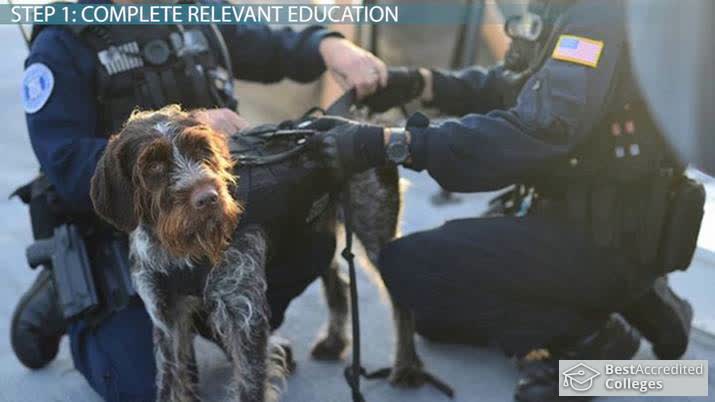In a world where compassion for animals should reign supreme, the unfortunate reality is that cruelty toward these innocent beings persists. Entering the field of animal cruelty investigation allows dedicated individuals to make a tangible difference and uphold the rights of animals. But how does one embark on this critical and fulfilling journey in Australia? This article serves as a comprehensive guide for aspiring animal cruelty investigators, encompassing essential qualifications, skills, and the challenges faced in this noble pursuit.
First, it is imperative to understand the fundamental responsibilities associated with animal cruelty investigation. This role typically requires investigators to examine complaints of cruelty, conduct thorough field investigations, collect evidence, and collaborate with law enforcement agencies to bring offenders to justice. But here lies a playful question: Are you ready to face the darker side of humanity while advocating for those who cannot speak for themselves? The journey may be arduous and emotionally taxing, yet it harbors the potential for profound impact.
To embark on this career path, a foundational step is acquiring the requisite education. While formal qualifications may not be universally mandated, possessing a background in fields such as veterinary science, animal welfare, criminal justice, or law can significantly enhance an individual’s profile. Diplomas or degrees in these areas provide critical knowledge about animal biology, legal parameters surrounding animal welfare, and investigative techniques. Undertaking volunteer work at animal shelters or advocacy organizations can also provide invaluable practical experience and networking opportunities.
Upon solidifying your educational foundation, honing specific skills becomes paramount. Communication skills are at the forefront of an animal cruelty investigator’s toolkit. This profession demands clarity and precision in report writing, while also necessitating the ability to convey sensitive information to distraught pet owners or traumatized witnesses. Furthermore, investigators must exhibit exceptional interpersonal skills, as they will interact with a diverse range of individuals—from those reporting suspected cruelty to perpetrators of such offenses.
Attention to detail is another critical characteristic of an effective investigator. Every minute detail can be crucial when building a case, from photographic evidence to witness statements. Additionally, problem-solving skills come into play; each case presents its unique challenges and requires innovative, adaptive solutions for successful resolution. The role also often demands resilience; facing distressing situations can lead to emotional wear, making self-care an essential practice for sustainability in this career.
As one furthers their career, understanding the legal framework surrounding animal welfare laws in Australia becomes acutely important. Each state and territory has distinct legislation guiding animal welfare, and investigators must be well-acquainted with these statutes to effectively navigate the legal landscape. For example, the Prevention of Cruelty to Animals Act outlines the responsibilities of animal owners and penalties for neglect and abuse. Being well-versed in these laws is not only crucial for successful investigations but also vital for educating the public about their responsibilities toward animals.
Having acquired education and skills, aspiring investigators frequently find themselves faced with a significant challenge: securing relevant employment. Various organizations, including local councils, humane societies, and law enforcement agencies, may offer job opportunities. However, competition can be intense, necessitating that candidates stand out. Networking through internships, volunteering, and attending relevant workshops can provide insights into the job market and help forge important connections.
Another potential hurdle is the emotional burden that accompanies the work. Confronted with cases of extreme neglect or abuse, investigators may grapple with feelings of distress and helplessness. Developing a supportive network, whether through peer collaborations or professional counseling, can mitigate these burdens and ensure that passion for the work remains undiminished.
However, the challenges should not overshadow the plethora of rewards that come with being an animal cruelty investigator. Those in this vocation experience the profound satisfaction of advocating for the innocent and bringing justice to the voiceless. This career path contributes to societal changes, raising awareness and fostering empathy towards issues of animal welfare. By participating in community outreach and educational programs, investigators can help cultivate a culture of respect and responsibility concerning animal care.
Ultimately, becoming an animal cruelty investigator within Australia is not simply a job—it’s a calling to stand against injustice and work tirelessly for those who cannot advocate for themselves. With an unwavering commitment to education, skill development, resilience, and advocacy, individuals can navigate the demanding landscape of this profession. Through dedication and compassion, aspiring investigators can play a pivotal role in eradicating animal cruelty, sparking a movement toward a more humane society.
In closing, as you reflect on your desire to step into this challenging yet rewarding field, consider this: Are you prepared to confront the uncomfortable truths of humanity while championing the defenseless? Your journey may not be easy, but the impact you can have on the lives of animals is profound and everlasting.








